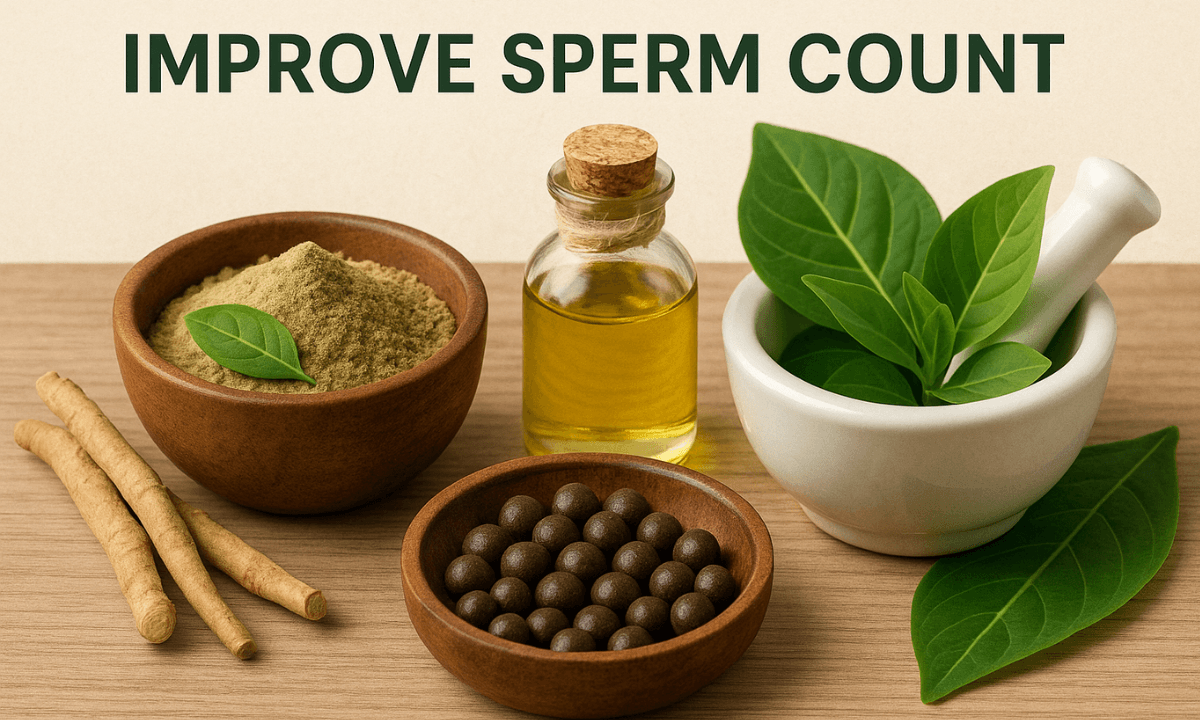What is Sperm? A Basic Understanding
Sperm are the microscopic male reproductive cells responsible for fertilizing the female egg during reproduction. Each sperm consists of three parts: the head (carrying DNA), the midpiece (energy source), and the tail (for movement).
Healthy sperm are vital for conception. Their motility (movement), morphology (shape), and count play crucial roles in successful fertilization.
Sperm Meaning in Hindi (स्पर्म का मतलब हिंदी में)
स्पर्म का मतलब होता है पुरुष के शरीर में मौजूद एक प्रकार की कोशिका जो प्रजनन में मदद करती है। इसे हिंदी में “वीर्याणु” कहा जाता है। यह पुरुष के वीर्य में मौजूद रहता है और महिला के अंडाणु को निषेचित करके गर्भधारण संभव बनाता है।
- स्पर्म की भूमिका: गर्भधारण के लिए महिला के अंडाणु तक पहुंचकर उसे निषेचित करना।
- स्पर्म का निर्माण: अंडकोष (testicles) में बनता है।
Common Causes of Low Sperm Count
A low sperm count can make it difficult to conceive. Key causes include:
- Unhealthy Lifestyle: Poor diet, lack of exercise, excessive smoking or alcohol.
- Medical Issues: Varicocele, hormonal imbalances, infections.
- Heat & Toxins: Laptop on lap, hot baths, exposure to chemicals.
How to Increase Sperm Count Naturally
Improving sperm count starts with healthy daily habits:
- Eat Antioxidant-Rich Foods: Blueberries, spinach, and carrots.
- Exercise Regularly: Boosts testosterone naturally.
- Limit Heat Exposure: No hot tubs or tight underwear.
- Avoid Toxins: Stay away from pesticides, heavy metals, and BPA.
Foods That Help Increase Sperm Count
Here are top foods that boost sperm production:
| Food | Benefit |
| Pumpkin Seeds | High in zinc and antioxidants |
| Walnuts | Rich in omega-3 fatty acids |
| Bananas | Contain bromelain to boost libido |
| Garlic | Improves blood flow |
| Spinach | High in folic acid |
Vitamins & Supplements for Sperm Health
Certain vitamins significantly improve sperm:
- Vitamin C: Protects sperm from damage.
- Zinc: Essential for sperm production.
- Vitamin D: Improves testosterone levels.
- Coenzyme Q10: Increases motility.
How to Make Sperm Stronger for Pregnancy
To enhance sperm strength and motility:
- Have Regular Sex: Every 2–3 days improves freshness.
- Reduce Stress: Cortisol interferes with testosterone.
- Stay Active: Cardiovascular health boosts circulation.
- Track Ovulation: Time intercourse with partner’s fertile window.
- Take DHA Supplements: Helps with tail strength and mobility.
How Many Times Should a Man Release Sperm in a Week?
There’s no magic number, but here’s what experts suggest:
- Ideal Frequency: 2–4 times a week maintains optimal sperm quality.
- Daily Ejaculation: Doesn’t significantly harm sperm count in healthy men.
- Too Little: Long gaps can lead to older, less motile sperm.
Pro Tip: For conception, every 2 days around ovulation is ideal.
Sperm Quality vs Quantity: What Matters Most?
While quantity is important, quality is often the deal-breaker. A semen analysis checks:
- Count: How many sperm per ml (should be 15 million+).
- Motility: How well they swim.
- Morphology: Normal shape percentage.
Role of Hydration and Sleep in Sperm Health
- Hydration: Sperm thrives in well-hydrated bodies. Aim for 2–3 liters daily.
- Sleep: 7–9 hours boosts testosterone and overall health.
Sleep deprivation and dehydration can drastically lower fertility.
Myths About Male Fertility and Sperm
- Myth: Boxers are better than briefs – Fact: Only matters with overheating.
- Myth: Daily sex ruins sperm – Fact: Healthy men replenish fast.
- Myth: Masturbation causes infertility – Fact: No medical proof.
Lifestyle Changes for Better Sperm Health
- Quit Smoking & Alcohol: Both reduce sperm count and motility.
- Stay Fit: Obesity negatively impacts testosterone.
- Reduce Screen Time on Lap: Laptop heat harms sperm.
When to See a Doctor for Sperm Issues
If trying for over a year without success:
- Get a Semen Analysis
- Consult a Fertility Specialist
- Explore Treatment: Hormone therapy, surgery, or IVF.
FAQs About Sperm and Fertility
Q1: Can daily ejaculation lower sperm count?
Yes, slightly, but it’s not harmful in healthy men. It can reduce count temporarily.
Q2: What is the best age for sperm health?
Ages 20–35 are generally best for quality and fertility.
Q3: Which food increases sperm fast?
Pumpkin seeds, walnuts, spinach, and dark chocolate.
Q4: Does coffee affect sperm?
Moderate caffeine is fine. Excess can reduce sperm quality.
Q5: Can sperm improve with exercise?
Yes, especially strength training and cardio.
Q6: Is thick sperm better for fertility?
Not necessarily. Motility and morphology matter more.
Conclusion: Take Charge of Your Fertility Naturally
Sperm health is a powerful indicator of overall male health. By making informed lifestyle choices—eating right, staying active, sleeping well—you can increase your sperm count, boost its strength, and improve your chances of successful conception. Remember, your health today shapes your fertility tomorrow.


